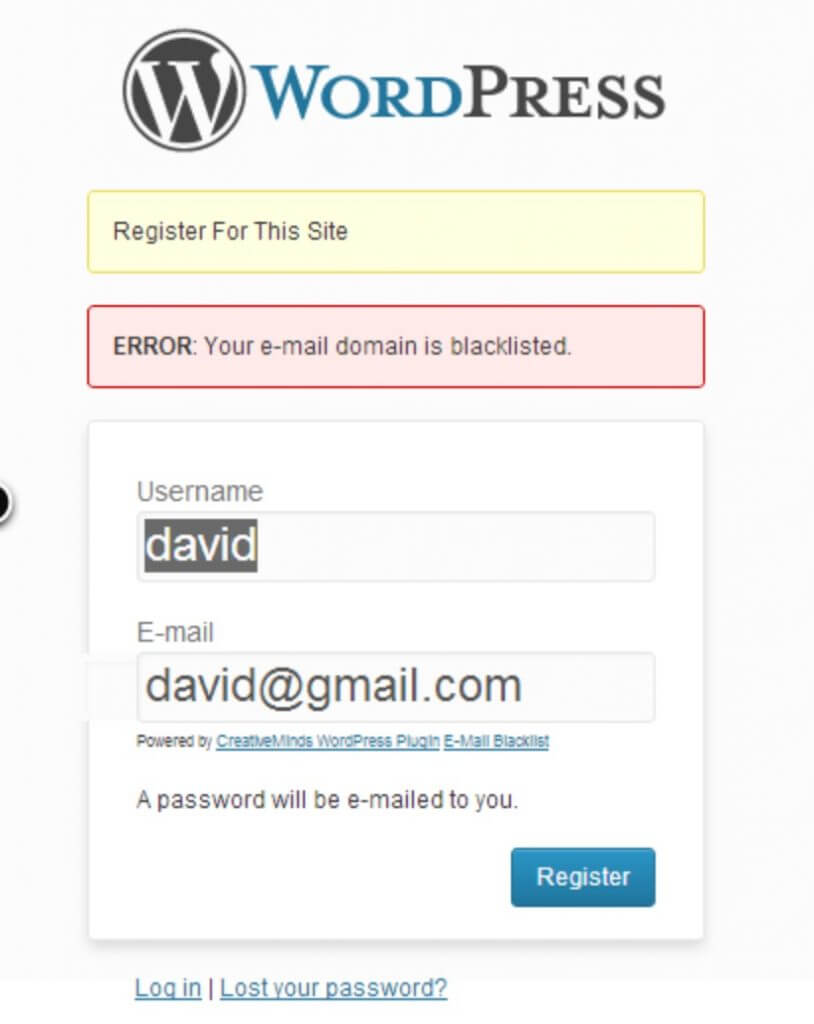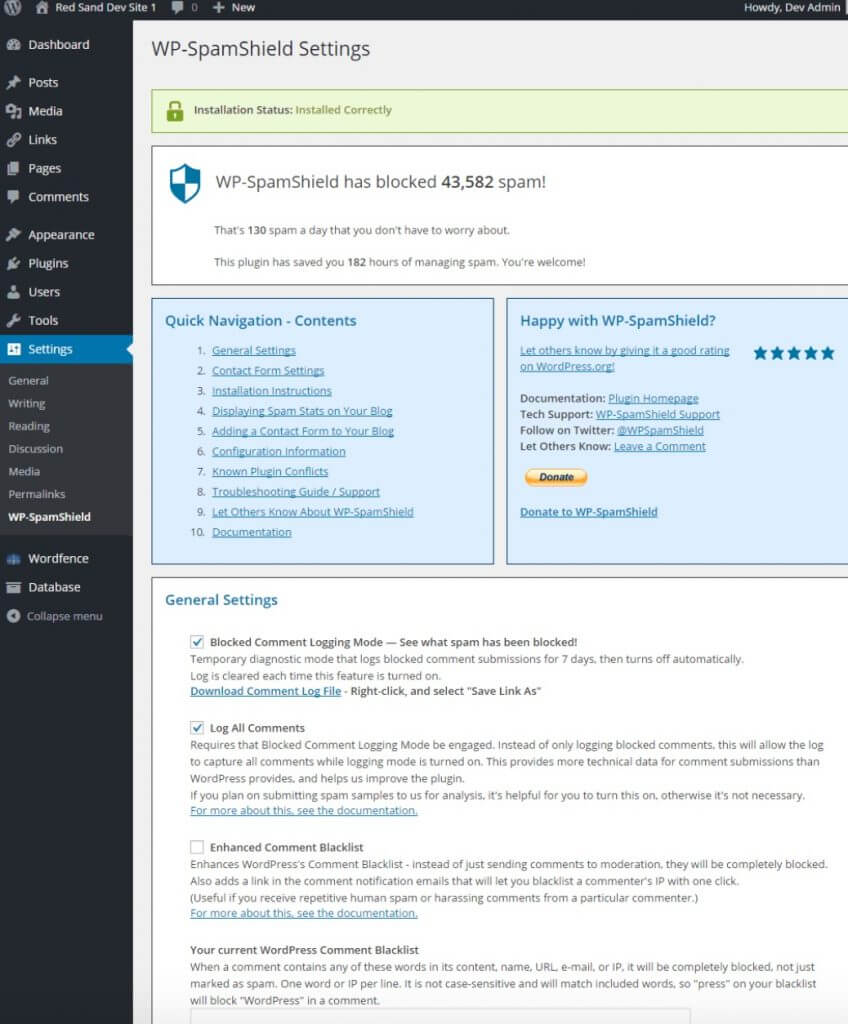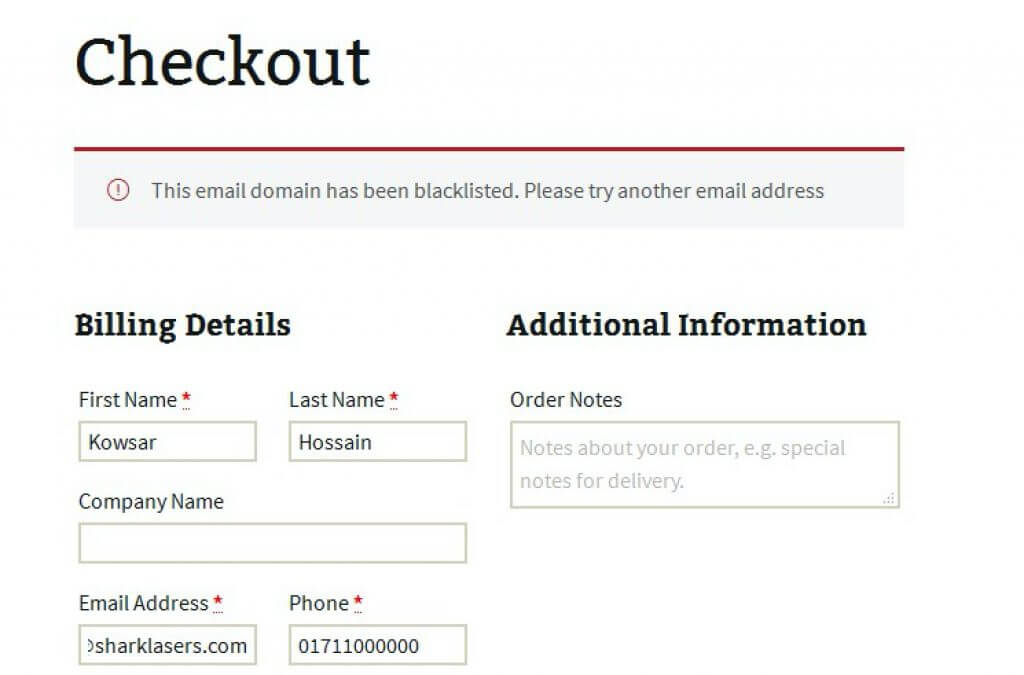As spam threats continue to evolve, finding effective tools to safeguard your WordPress site becomes crucial.
In this blog post, we’ll explore five excellent Email Blacklist and Anti-Spam WordPress plugins that offer robust solutions to fortify your website against unwanted emails, spam registrations, and potential security vulnerabilities.

Protecting WordPress Site From Spam Attacks
Spammers can be both humans and bots, who use all types of different methods to access websites.
Protecting a WordPress site from spam attacks is an essential aspect of maintaining a secure and user-friendly online environment.
One effective strategy is to leverage robust anti-spam plugins that offer features such as email blacklisting, spam detection, and advanced filtering mechanisms.
Implementing a reliable firewall can help thwart malicious attempts, while enabling CAPTCHA or reCAPTCHA for user interactions adds an extra layer of security.
Regularly updating WordPress core, themes, and plugins is crucial to patching vulnerabilities that spammers may exploit. Additionally, enforcing strong password policies and employing two-factor authentication for user accounts adds an extra layer of defense against unauthorized access.
By combining these proactive measures, website administrators can significantly reduce the risk of spam attacks, ensuring a smoother and more secure experience for both site owners and users.
December 2024 Offer – For a Limited Time Only:
Get WordPress Email Registration Blacklist Plugin for 15% off! Don’t miss out!
Excellent Email Blacklist & Anti-Spam WordPress Plugins
WordPress blacklist plugins play a pivotal role in fortifying websites against unwanted threats such as spam and potentially harmful content.
These plugins allow site administrators to create a defense mechanism, allowing them to create blacklists that restrict access from specific domains, email addresses, or IP addresses known for malicious activities.
By incorporating constantly updated databases and advanced filtering algorithms, these plugins can automatically detect and block suspicious entities, mitigating the risk of spam registrations, comment spam, and other forms of unwanted intrusion.
With user-friendly interfaces and customizable settings, WordPress blacklist plugins offer a versatile solution to tailor security measures according to the unique needs of a website, ultimately contributing to a safer and more secure online environment.
1. CM Email Blacklist Plugin
The CM Email Blacklist Plugin enhances website security by implementing both blacklist and whitelist functionalities in the user registration process. This robust solution ensures that only trusted users, with whitelisted domain names and emails, are permitted to register, offering administrators greater control.
Powered by SpamAssassin, the plugin maintains an up-to-date blacklist to thwart registration attempts from known malicious sources.
Simultaneously, it logs all failed registration endeavors, providing administrators with valuable insights into potential threats and enabling proactive measures to bolster overall security.
The IP blacklist plugin functionality offers an extra layer of security. This feature enables administrators to block specific IP addresses associated with malicious activities, preventing unwanted access to the website.
By maintaining a dynamic IP blacklist, the plugin ensures automatic protection against known threats, strengthening overall security for user registration.
In summary, the CM Email Blacklist Plugin is a comprehensive tool that fortifies websites against unauthorized registrations, leveraging both proactive filtering and detailed logging capabilities.
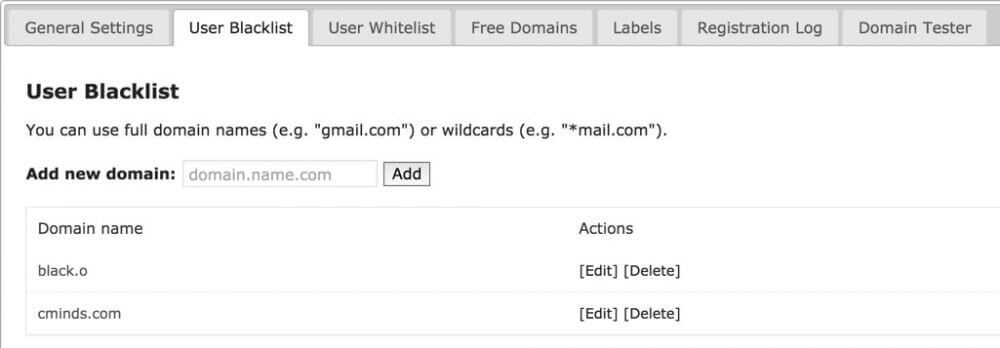
Email Registration Blacklist Blocked Domains List
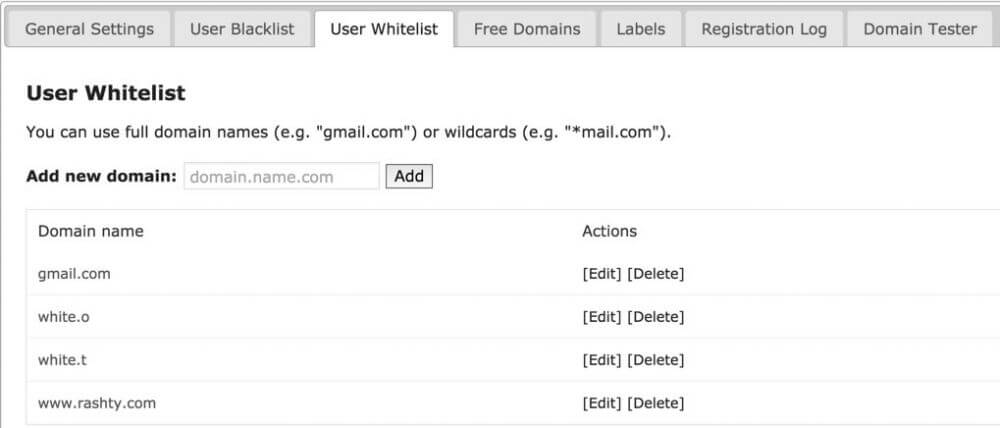
Email Registration Blacklist Approved Domains List
2. Akismet
Akismet stands as a top-tier anti-spam system, meticulously examining millions of websites to identify and stop spammers from harming your website.
This powerful plugin not only simplifies the process of blacklisting comment spam but also ensures the overall security of website data, shielding it from the insidious reach of spammers and viruses alike.
Whether you opt for a convenient monthly subscription or a per-website rate, Akismet provides a hassle-free solution for safeguarding your valuable information against the persistent threat of spam.
Take a proactive stance in securing your online presence and let Akismet handle the heavy lifting, allowing you to focus on what matters most – the uninterrupted flow of genuine and meaningful interactions on your website.
3. WP-SpamShield Anti-Spam
Update 2024: The plugin is not supported anymore
The WP-SpamShield Anti-Spam plugin is an all-in-one spam protection system for WordPress. The plugin focuses on eliminating comment spam, registration spam, trackback spam and contact form spam. This plugin works silently in the background, without captchas, challenge questions or other security measures.
4. Woo EDD Email Domain Blacklist
The Woo EDD Email Domain Blacklist Plugin aims to stop spam domains from accessing your Easy Digital Downloads or Woocommerce checkout page. This plugin also specifically blocks temporary email services from letting users access your checkout pages.
Any temporary email domains will be blocked and blacklisted. The plugin is also fully customizable.
5. Ban Hammer
Ban Hammer is a unique WordPress plugin which allows users to be banned from registering on your website and leaving comment spam. The plugin uses comment moderation to blacklist users from accessing your website. There is no record kept of blocked registrations.
These email blacklist and anti-spam plugins for WordPress will ensure that spammers will stay locked out of your site, even when using temporary email services.
Some of these plugins record all failed login attempts, while others attack comment or contact form spam. The key is to find the right email blacklist plugin for your business, but you can’t go wrong with any of these.
Conclusion
Blocking spammers from WordPress sites is easy to do with the right tools. All of these methods will ensure that spammers and temporary emails will not be able to get into your WordPress site.
Users can use these plugins to prevent specific spammers from accessing a site, such as through comments or registration. Or users can ensure that spammers are blacklisted, registration is restricted, and more.



